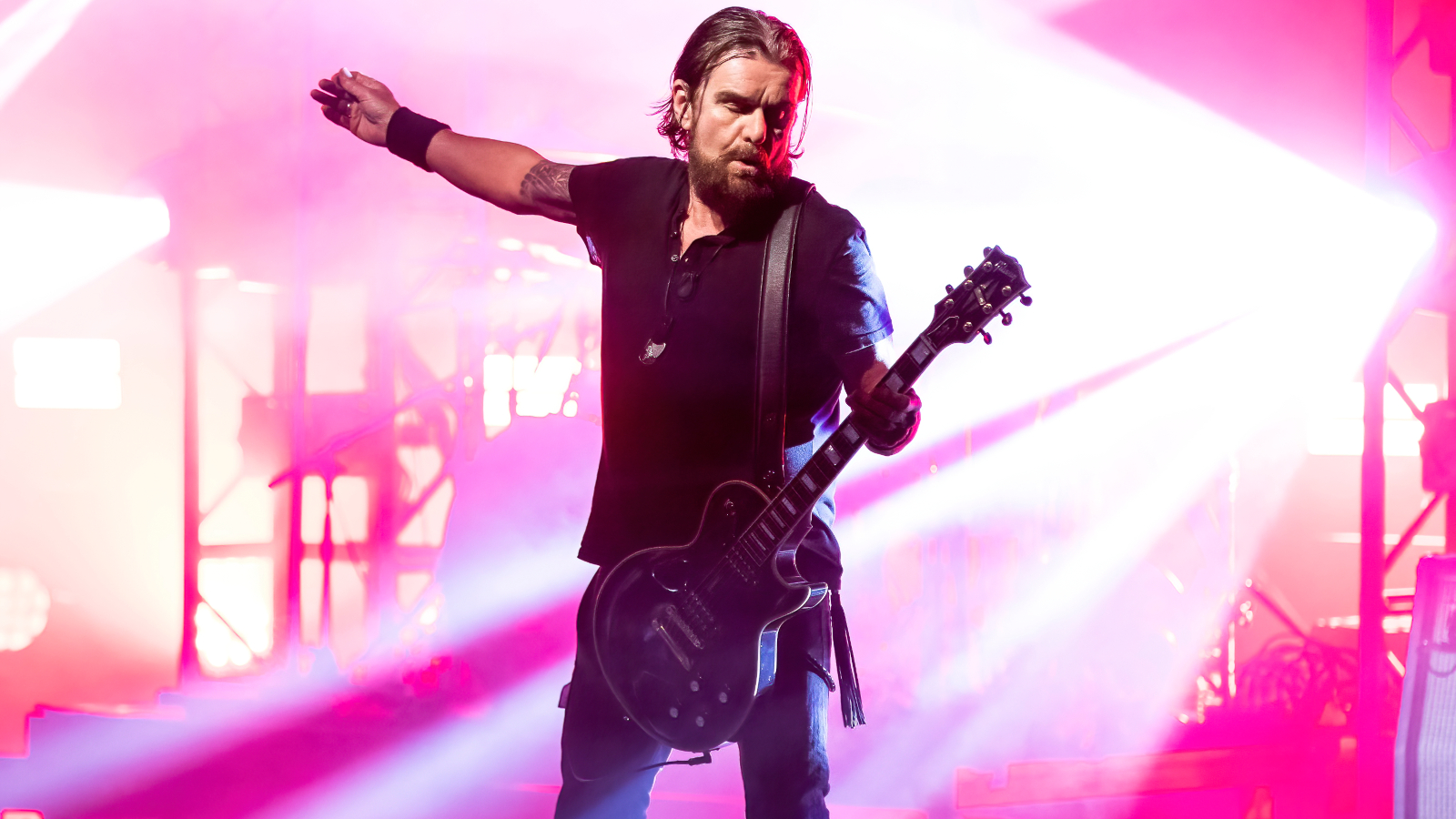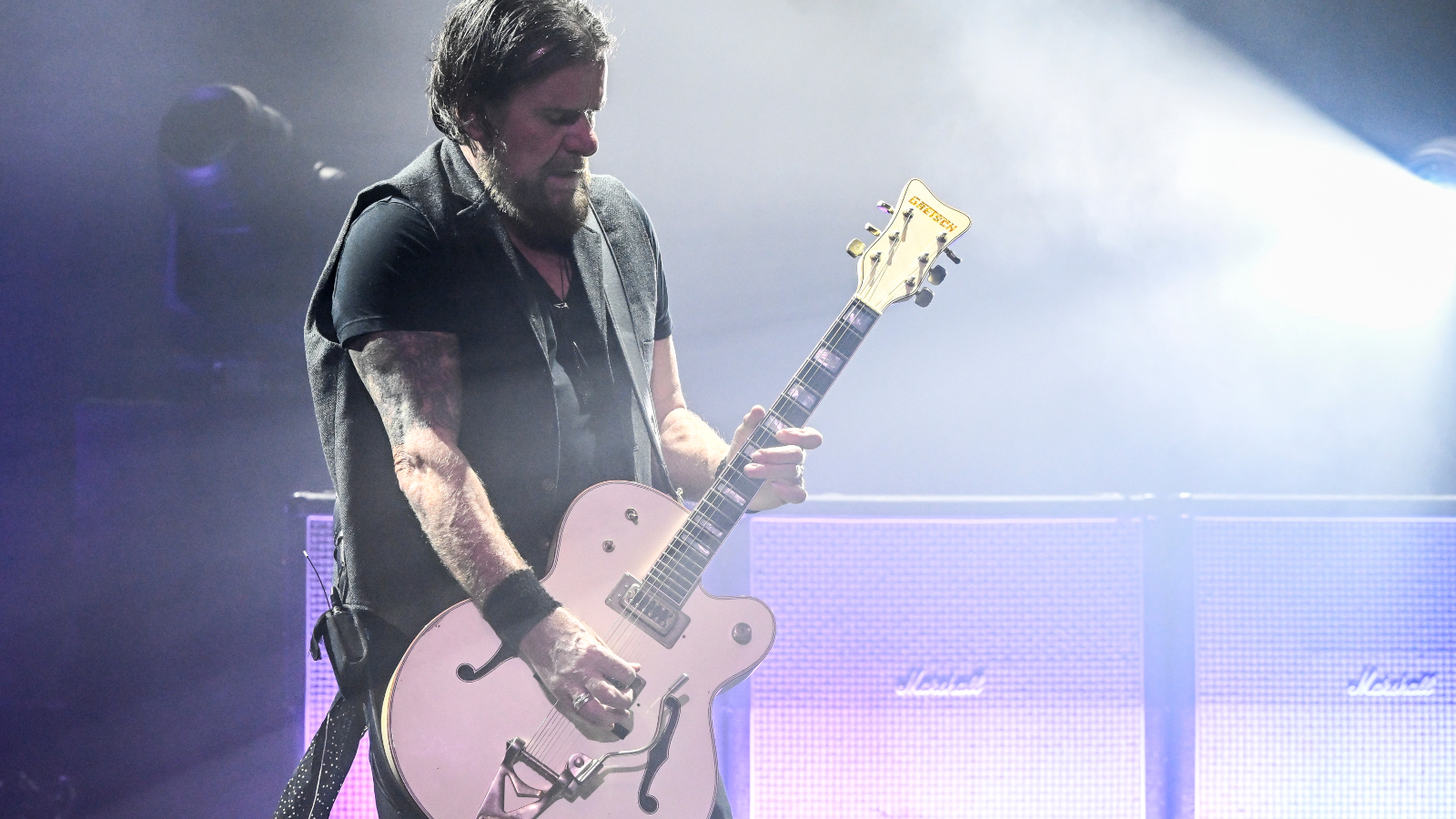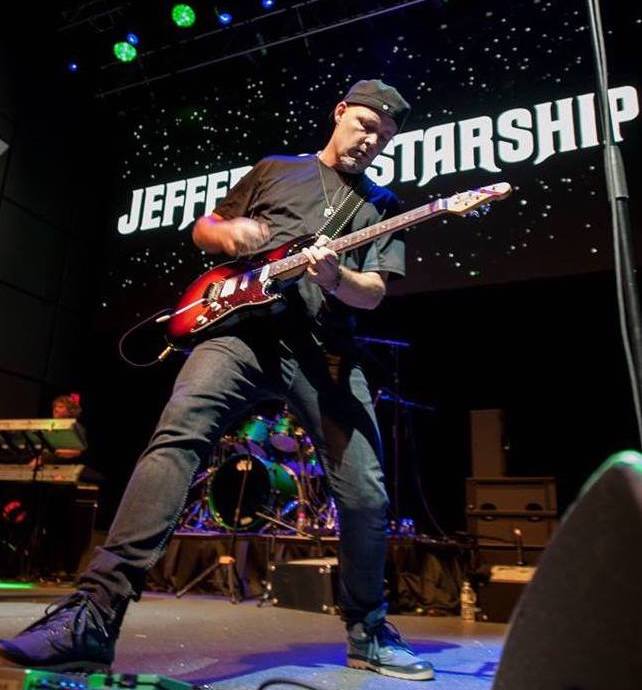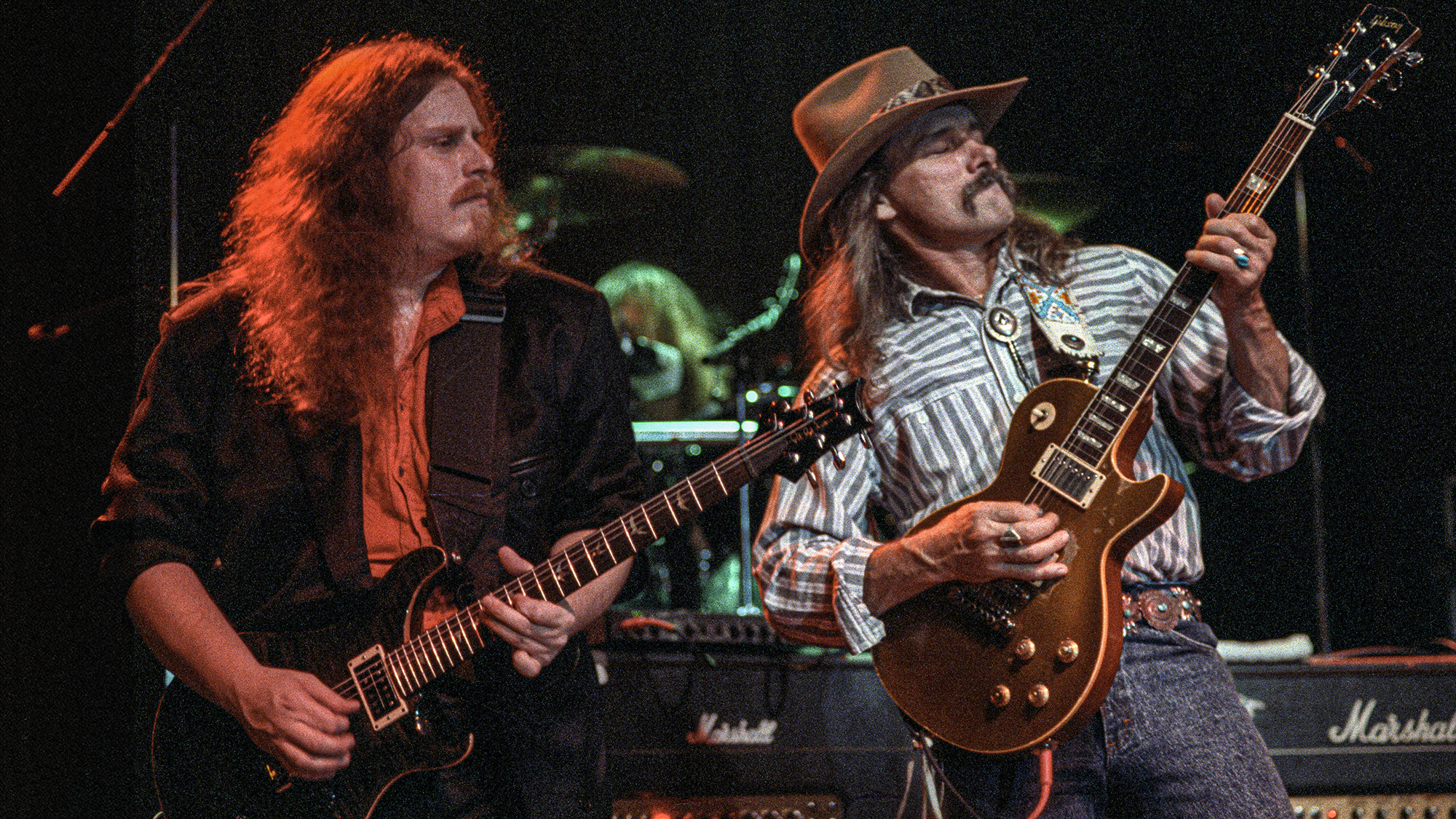
All the latest guitar news, interviews, lessons, reviews, deals and more, direct to your inbox!
You are now subscribed
Your newsletter sign-up was successful
***The following appeared in the September 2019 issue of Guitar Player***
The Cult released their fourth album, Sonic Temple, in 1989. Powered by Billy Duffy’s bigger-than-Beethoven guitar themes and Ian Astbury’s mystical, soaring lead vocals, the record went Platinum by winning over both traditional hard rock fans and alt-rock/pre-grunge fans alike.
As I head into SIR Hollywood to interview Duffy, the band’s publicist calls to say, “The bad news is that rehearsal is running at least an hour behind.”
Being sober sort of snuck up on me
Billy Duffy
The good news is I’ve been invited to watch the Cult run through hits such as “Sun King,” “Fire Woman,” “Sweet Soul Sister” and nearly every other song from Sonic Temple.
The spectacle is a bit surreal. I’m receiving a private concert of one of the greatest crossover albums in hard rock history.
Duffy stays tethered to his rig on stage left until the very last note of rehearsal, switching back and forth between Gibson Les Pauls and his famous signature-model Gretsch Falcons.
He looks very healthy. Later, I tell him he appears far younger than his years. “You flatterer!” he replies. But I insist I’m being sincere and press him to share what, if anything, he’s been “doing right” over the years. “I don’t know,” he says. “I used to be quite fond of a drink, but I quit drinking a couple of decades ago.
All the latest guitar news, interviews, lessons, reviews, deals and more, direct to your inbox!
“I thought, I’ll stop for a bit, and that bit became longer and longer. Being sober sort of snuck up on me, and I think it’s had a long-term benefit.”

The first time we met, I was doing a little reality TV gig for NBC, coaching an actor on how to become a better guitar player. We had spoken to a few pro guitarists, and they all gave us advice on technique or practicing. But when we ran into you on Sunset Blvd., you simply told us, “Get a cool guitar.”
Yes, I’ve been pretty consistent with that advice – get a really cool guitar, one that makes you feel proud and one that helps you find your own sound.
Get a really cool guitar, one that makes you feel proud and one that helps you find your own sound
Billy Duffy
I think it’s a British thing. Growing up in Britain, my background was very blue collar and working class, and we weren’t drowning in a sea of wealth, so I never really had to worry about what car I was going buy. It was the small things – cool clothes, a cool guitar or other accessible things – that would make you stand out.
It was an outward expression of how you saw yourself, because things were generally quite grim for most people in England in the ’70s.
You, of course, have become so famously associated with the Gretsch White Falcon that you now have your own signature models available.
I got my original Falcon from a guitar shop in London – we ordered it from America – and now people love to see that guitar.

I think it gets a bigger round of applause than I do! It was the end of the ’70s, punk was kind of fading, and we were all looking for guitars that would give us different sounds because you couldn’t really outdo what heroes like [the Sex Pistols’] Steve Jones or [the Clash’s] Mick Jones were doing with a Les Paul. So I got into the Gretsch look.
A good example of the Falcon sound is the guitar on “She Sells Sanctuary"
Billy Duffy
Plus, I wanted something that behaved a little differently, spatially. I needed to make as much noise as possible with a guitar. A good example of the Falcon sound is the guitar on “She Sells Sanctuary” [off the Cult’s Love album].
I’ve actually retired my main Falcon. It has become a museum piece, so to speak. The guitar in itself isn’t that valuable but it’s got a lot of history to it. The version I’m playing now is a Stephen Stern Masterbuilt replica, and it’s even better than the original.
How much White Falcon did you play on Sonic Temple? You’re holding a Les Paul on the cover.
By the time we got to Sonic Temple, we had Bob Rock on as producer and the idea was to mix elements of the Love album – which was a little more open and psychedelic sounding – with the harder, more simplistic rock sound of Electric. So there’s a lot of Les Paul on the album, but quite a bit of Gretsch, too.
AC/DC did that in a great way, with Malcolm Young on the Gretsch and Angus on the Gibson, and in one sense that’s what I was going for, but with a lot more layers. I had always wanted to make a fully explored, unashamed rock album with lots of overdubs, and it was finally time.
We were doing a hybrid of Queen, Bad Company and Mott the Hoople, with a bit of punk rock in there
Billy Duffy
It’s funny – Ian and I saw the project differently. To him, Sonic Temple was psychedelic, and we were doing Disraeli Gears. To me, we were doing a hybrid of Queen, Bad Company and Mott the Hoople, with a bit of punk rock in there.
Sonic Temple was one of Bob Rock’s first big records. Any standout moments you recall from when you were tracking guitars with him?
Yes, “Sweet Soul Sister.” In those days we were somewhat indulgent with ourselves financially, so I spent a whole day doing the solo on that song, and, finally, we arrived at something we all knew was great.
But somehow, even though Bob is super meticulous and never wipes anything, that solo got lost, and I couldn’t manage to recreate it. All we had was a rough mix, which was on a cassette tape Ian had been listening to in order to work on his vocals.
So Bob finally just grabbed that cassette and somehow brought the solo section from it – with the backing band tracks and everything – back into the main session. The actual guitar solo on “Sweet Soul Sister” is from a cassette tape!
I had never seen myself as a fast or technically gifted guitar player, but because of where the band was headed, it was starting to be required of me
Billy Duffy
Honestly, when it came to doing the leads on Sonic Temple, there was a lot of chopping – a lot of proper old-school razor-blade-and-tape stuff. I had never seen myself as a fast or technically gifted guitar player, but because of where the band was headed, it was starting to be required of me.
I kind of needed to be fast-tracked so that my lead guitar playing caught up with the sound we were going for. So a few of the solos were cut together.
Many of your big songs – “Fire Woman,” “Sanctuary,” “Love Removal Machine,” “American Horse” and “Sweet Soul Sister,” for example – are centered in D. I vote that you be made the honorary king of the key of D.
I was very proud that we had, I think, nine Top-40 singles England, and most of them were in the key of D.
A lot of my stuff was the drone thing. I like the discipline of moving up and down the G string while the D is ringing below, like on “Sanctuary” or “American Horse.”
People go, “Why don’t you just play all those notes in one place on the neck using different strings?” but that doesn’t have the same effect.
I like the discipline of moving up and down the G string while the D is ringing below, like on “Sanctuary” or “American Horse”
Billy Duffy
It’s said that handling success can be just as hard as handling failure. What did you learn from the experience of Sonic Temple blowing up and suddenly catapulting you guys to a much higher level of fame?
One thing is that you never really know when you’re at your peak. Only in retrospect do you realize that something was your peak. You always think your next album is going to be the biggest one. There’s no pamphlet or brochure that explains how it’s going to go. You just have to hold on for the ride.
We had a sage manager back then named Howard Kaufman, and he said, “Be careful, because now you guys each have ‘fuck-you money.’” And he was right. If you’re lucky enough to get success – and some of the cash and prizes that come with it – it becomes an issue, because then people can be like, “Well, I don’t need this. I’ve got money. I don’t need to put up with your nonsense.”
You have to get through that phase as a band. Your overriding love and passion for music has to win out over the other stuff.
Are there any hilarious onstage Spinal Tap-style moments you remember from the first Sonic Temple tour?
The biggest Spinal Tap moment I’ve ever seen came a couple years later, and it happened to somebody else.
Things go wrong, and it’s not always a bad thing, because I think people in the audience can relate more to those moments than any other
Billy Duffy
We were playing soccer stadiums in Europe with Metallica, and Megadeth were on the bill too. The stage had a triangular ego ramp that went way out into the crowd, and Metallica let Dave Mustaine use it.
One day, Mustaine walks all the way to the front of that thing to start a song with a big chord, only to discover his tech had not turned on his wireless battery pack, so the guitar didn’t work.
I was right there as Mustaine walked all the way back in silence, just fuming. I was shitting my pants laughing, thinking, Oh no! Somebody dig a grave for that poor roadie.
The thing is, if you stick around long enough, you see everything. Things go wrong, and it’s not always a bad thing, because I think people in the audience can relate more to those moments than any other.

Whether he’s interviewing great guitarists for Guitar Player magazine or on his respected podcast, No Guitar Is Safe – “The guitar show where guitar heroes plug in” – Jude Gold has been a passionate guitar journalist since 2001, when he became a full-time Guitar Player staff editor. In 2012, Jude became lead guitarist for iconic rock band Jefferson Starship, yet still has, in his role as Los Angeles Editor, continued to contribute regularly to all things Guitar Player. Watch Jude play guitar here.
